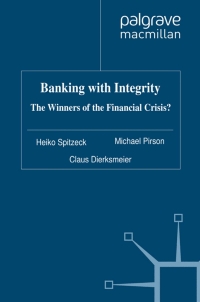Question
Harveys REIT is a company that invests in income generating land and buildings. Since Harveys is organized as a REIT it must pay out most
Harveys REIT is a company that invests in income generating land and buildings. Since Harveys is organized as a REIT it must pay out most if not all of its income to shareholders as a dividend. Since the firm is a pass through vehicle (passes income straight threw to investors), the REIT pays no taxes (its investors get taxed at the personal level with all income treated as ordinary income). With little retained earnings, new real estate acquisitions are debt or equity financed.
Harvey has two categories of investment. One category is hotels and the second is land for special events parking. The land business is very interesting because you can simply buy the land and there is little or no working capital or capital expenditure needs since the land is often just fields near ballparks, state fairs, concert facilities, etc
For most of Harveys businesses, the cash flow grows at roughly the inflation rate. Hotel fares and parking rates trend up with inflation. Acquisitions rarely add much value, since they are bought in competitive real estate markets. What you pay is pretty close to the discounted cash flow value of what you buy. No acquisitions are currently on the radar and most believe that there should be little value from future acquisitions in Harveys REIT share prices.
Harvey has entertained breaking up the two units perhaps by divesting one and keeping the other. He wonders what each unit is worth. Here are the cash flows of each business
Hotels: FCF = 90m upcoming year
Parking land FCF = 30m upcoming year
Both business are expected to grow their FCF at 2.4% in perpetuity (due to inflation)
Recall from your prior classes a growing perpetuity is worth:
Value now = FCF(upcoming year) / (discount rate on FCF growth rate in perpetuity)
For the most part, given the absence of taxes, it is believed that the firms situation approximates perfect market conditions (assuming debt is not 75% plus of total financing which could raise bankruptcy concerns).
Similar (non-taxed) REITS have the following data:
Pure plays (MV stands for market Value and all figures in millions):
| Hotels | MV equity | MV Debt | Beta equity |
|
|
| Paradise | 800 | 511 | 1.0 |
|
|
| Nirvana | 800 | 4000 | 2.0 |
|
|
| Highway | 900 | 900 | 1.1 |
|
|
| Primrose | 800 | 200 | 0.8 |
|
|
The land parking business is unique in the world of publicly traded equities. There are no pure plays out there. All the above firms with D/E below 1.1 are able to borrow at approximately 4.5%. The market risk premium is 5% and the risk free rate is 4.5%. The same is true for Harvey.
Harvey currently has market value of debt = 1000m
Harvey has a market value of equity = 1500m
Harvey has an equity beta of 0.9.
Harvey does not allocate debt between divisions. He views the debt ratio of each to be the same.
Assume that Harvey views the market valuation of his firm as likely accurate he believes that markets are efficient. He also views the valuation of competitors as reasonably accurate. He thinks the listed hotel competitors have properties with fairly similar risk, but realizes there may be slight errors in beta estimates (up or down) and averages of beta will have less errors.
How can Harvey figure out the value of his hotel business (not equity or debt pieces, the whole value) and what is the estimate for it? Show the steps for doing so for partial credit
What is the value of the Land business, its WACC, and its unlevered beta?
Assume that no divestiture takes place. If the Land business got an unexpected opportunity to acquire a piece of land that would generate FCF = 2m growing at 2.4% in perpetuity, and it had an asking price of 48m, should it do the deal? Why or why not?
Some at the firm say that 2/48 = 4.1667%. They note that the accounting return is not even sufficient to cover the cost of borrowing (if the project is financed with all debt) and therefore the project should not be taken. Does this logic make sense? Explain why or why not? (An explanation of what is right or wrong with argument would be useful.
Step by Step Solution
There are 3 Steps involved in it
Step: 1

Get Instant Access to Expert-Tailored Solutions
See step-by-step solutions with expert insights and AI powered tools for academic success
Step: 2

Step: 3

Ace Your Homework with AI
Get the answers you need in no time with our AI-driven, step-by-step assistance
Get Started


